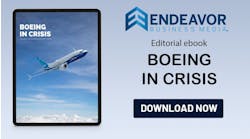LONDON--British American Tobacco on Friday launched a vast $47 billion bid for full control of Reynolds American, as it seeks expansion into the United States -- the second largest market after China.
The deal, worth the equivalent of 43 billion euros for the 58% of Reynolds that BAT does not yet own, would cement its status as one of the world's largest tobacco companies.
The news sent BAT's share price surging on the London stock market, but it lost momentum and finished it closed down 2.9%.
BAT said the move would give it "a leading position in the US tobacco market" as well as "a significant presence in high growth emerging markets."
"The main reason for the deal is for BAT to be in the United States," a company spokeswoman told AFP, noting that the company did not have a direct presence there.
She added that building on the popularity of e-cigarettes was also a motivation behind the deal.
The blockbuster proposal would bring together BAT brands Dunhill, Kent and Lucky Strike cigarettes with Reynolds American's Camel and Newport.
The combined group would have a "world class pipeline" of so-called next generation products like e-cigarettes, in a fast-growing part of the market, the statement added.
Most global tobacco firms are looking to emerging markets to offset sliding demand in Western Europe, where high taxes, public smoking bans and health concerns have persuaded many people to give up or turn to e-cigarettes, battery-powered devices that heat a nicotine liquid.
Reynolds issued a brief statement, saying its board will evaluate the offer.
"Reynolds American Inc. acknowledges that it has received a non-binding proposal from British American Tobacco p.l.c. (BAT) to purchase the approximately 58% of RAI common stock that BAT does not currently own. The RAI board of directors, consistent with their fiduciary duties, will evaluate the offer from BAT and respond accordingly," the statement said.
Reynolds share price was up more than 13 percent at $53.35 midday.
'Global consumption rising'
Half of BAT's sales are in developed nations and the rest in emerging markets.
"We are not concerned by the decrease in tobacco consumption in developed countries as the consumption is rising on a global scale," the spokeswoman added.
The world's biggest cigarette producer by market share is the state-owned China National Tobacco Corporation, followed by Marlboro maker Philip Morris.
Merged with Reynolds American, BAT would win some ground but remain the third biggest player, according to data-gatherer Euromonitor.
However, BAT said it would be the biggest listed tobacco firm by net turnover and operating profit.
"The full access this acquisition would give BAT to the United States -- a lucrative, consolidated market with high barriers to entry -- (means) it makes eminent sense," said Euromonitor analyst Shane MacGill.
The cash-and-shares offer would see BAT purchase the 57.8% of Reynolds American that it does not already hold.
The bid, pitched at $56.50 per Reynolds share, was a 20% premium on Thursday's close.
The deal values the Winston-Salem, North Carolina Reynolds at $93 billion.
BAT noted Reynolds' 2015 purchase of Lorillard, the manufacturer of the Blu e-cigarette, had "strengthened" the US group.
"The proposed merger of our two great companies is the logical progression in our relationship and offers all shareholders a stake in a stronger, truly global tobacco and Next Generation Products company," said BAT chief executive Nicandro Durante.
"BAT is proud of its track record of consistent delivery for shareholders and this transaction would further strengthen that delivery in the future."
The British firm added that it had not yet held formal merger talks owing to US securities laws.
Worldwide, smoking claims around six million lives annually, mostly in low-income countries, the World Health Organization says.
Copyright Agence France-Presse, 2016.



